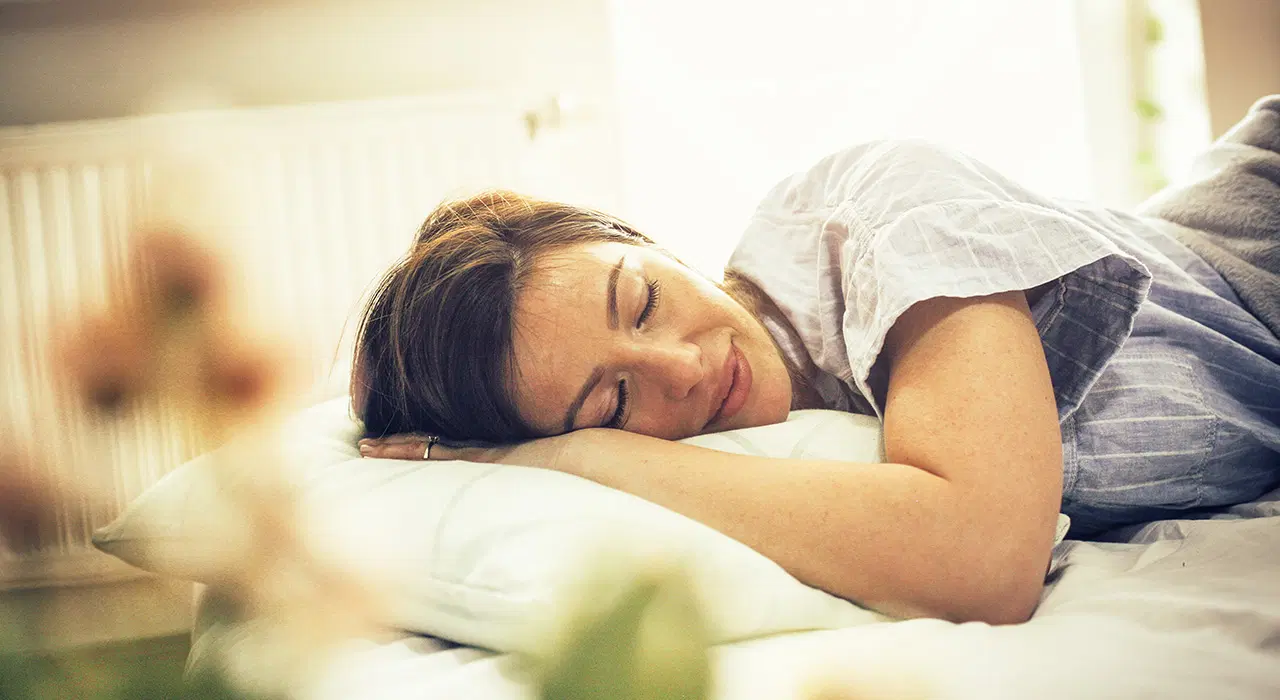Will Heartfulness Meditation help me to sleep better?

Problems with sleep are endemic in modern urban society. Disciplining our sleep cycle changes our life, because how well and how deeply we sleep determines our state of mind throughout the day. Generally, it is better to sleep early to be in tune with natural cycles. Also, meditation will improve drastically, as we are not struggling with our consciousness. When we are fully alert in the morning, some beautiful conditions will be created in the heart when our consciousness is ready to receive them.
If we get the right amount of sleep, the sympathetic nervous system will automatically be active in the morning. Over millennia our systems have evolved in such a way that when the sun rises, certain hormonal patterns are triggered. When we are in tune with that rhythm, our health automatically improves. What happens to people who go to bed very late at night? When we go against the rhythm, when we are swimming against the current, our decline in health over time will speak volumes. Extensive studies have been conducted on people who work at night, and it has been discovered that, among other things, they age rapidly.
There are two very enlightening TED talks by Jeff Illif (“One More Reason to Have a Good Night’s Sleep”) and Matt Walker (“Sleep is Your Superpower”), in which they describe the importance of healthy sleep patterns. Heartfulness practices help us to become more in tune with natural cycles and thus regulate our sleep patterns.
Here are a few key points from Matt Walker’s talk:
• Sleep is a non-negotiable biological necessity that is our life support system. The sleep-loss epidemic in our current world is catastrophic and one of the greatest public health problems of today. Sleep is the most powerful elixir of life.
• Human beings are the only creatures that deliberately deprive themselves of sleep for no good reason. A lack of good sleep affects the health of both the brain and body significantly.
• Without sleep, the memory circuits of the brain cannot absorb new memories. These learning disabilities are related to the hippocampus in the brain. In people who have a good 8 hours of sleep a night, the hippocampus shows healthy learning activity; in sleep-deprived people there is no learning signal at all, because the short-term memories are not shifted to a long-term storage site within the brain. The disruption of deep sleep contributes to memory decline in aging people as well as those with Alzheimer’s.
• The reproductive health of both men and women is improved with good sleep. The cardiovascular system and immune system are highly compromised by sleep deprivation, especially the natural killer cells. Lack of sleep is also associated with various forms of cancer.
• Short sleep predicts all-cause mortality, because a lack of sleep erodes the fabric of biological life itself – the DNA genetic code. Even a reduction to 6 hours of sleep a night has a negative effect: the immune system genes are switched off and the genes that promote tumors, chronic inflammation, stress and cardiovascular disease are switched on.
Here are some tips for getting a good night’s sleep:
• Rise early in the morning and spend a few minutes out in the sun, as this will balance the hormones serotonin and melatonin, aiding in regular sleep patterns.
• Around sunset, or when you finish your day’s work, do the Heartfulness Cleaning, so that you are able to let go of the worries and stresses of the day.
• Wind down in the evening for a couple of hours before sleeping, so your brainwaves slow down and you are able to naturally transition into sleep.
• At bedtime, first analyze what you could have done better during the day and let go of any wrongs you have done, vowing not to repeat them. Then do the Heartfulness Prayer so you sleep in a deeply open relaxed state, connected to your Center. You can also meditate while lying down after the prayer, so that you gently drift off to sleep.
If you still have trouble sleeping, here are some more useful tips:
• Wash your feet before going to bed.
• Try sleeping on your right side, as it activates the Chandra Nadi, helping you calm down.
• Imagine gentle cool water falling from above your head, calming you.
• Drink a glass of warm milk. • Do the Heartfulness Relaxation lying down in bed.
• Listen to music that relaxes you. Some music that is particularly good for sleeping can be found at www.heartfulness.org/goodnightsleep. The time signature of this music is 5/4 so there are 5 beats in every bar. Breathe in on the first 3 beats and breathe out on the last 2 beats.
• Try fasting.
• Try sleeping on the floor or ground, preferably under a Peepal tree.